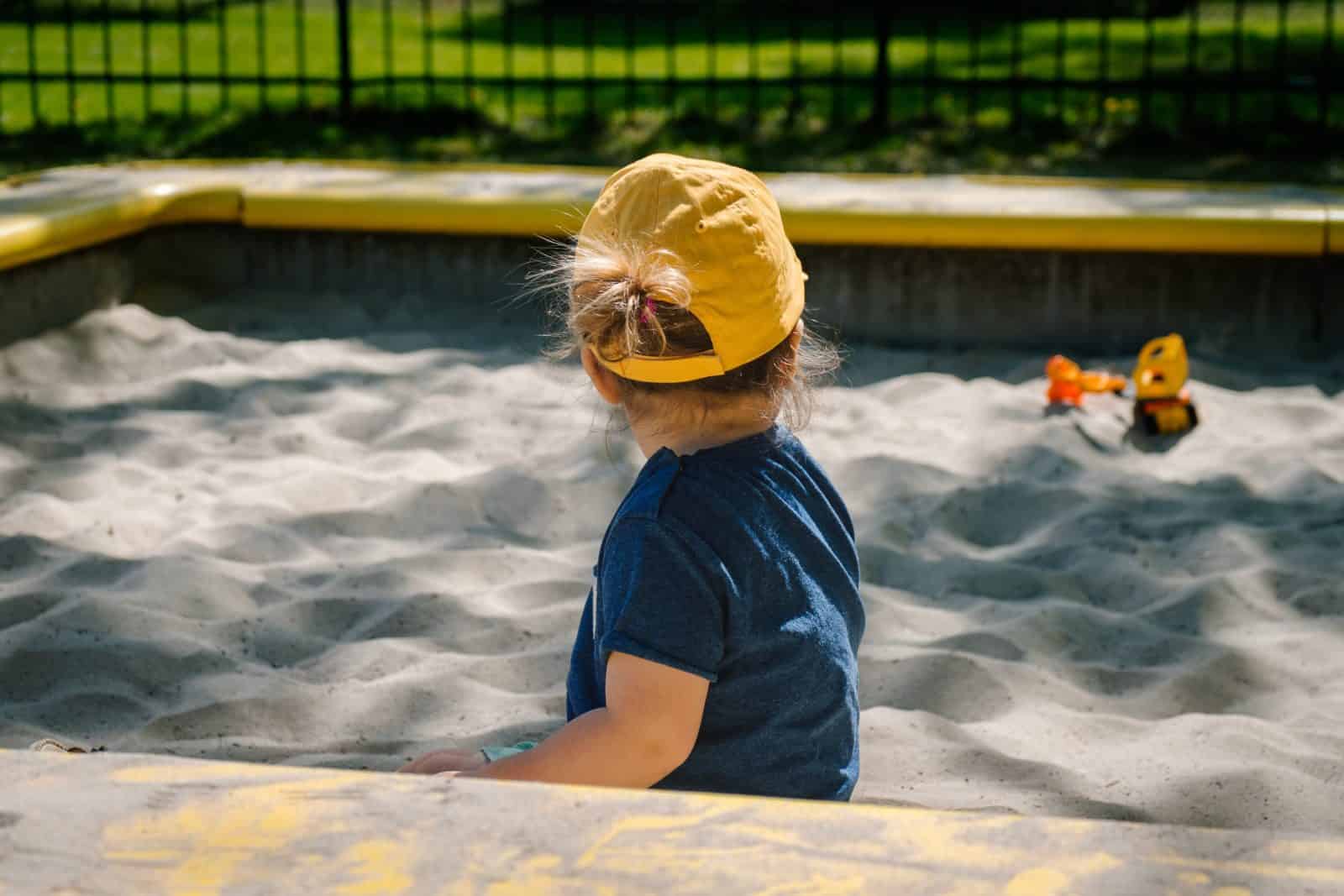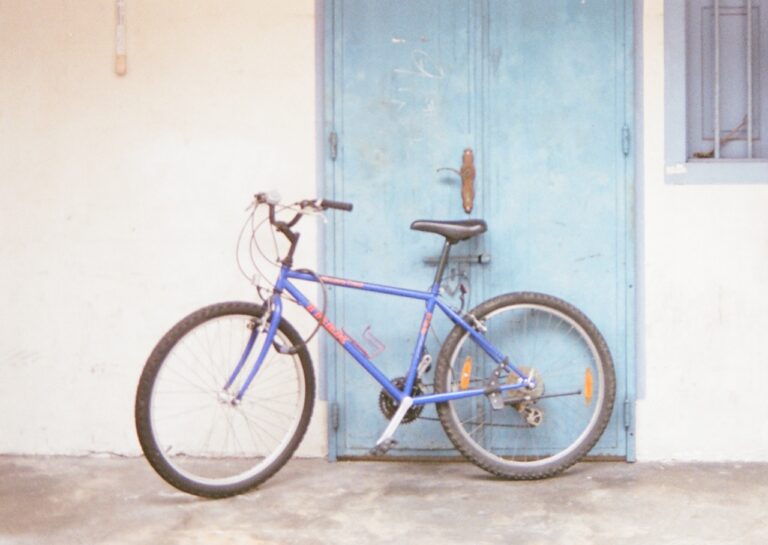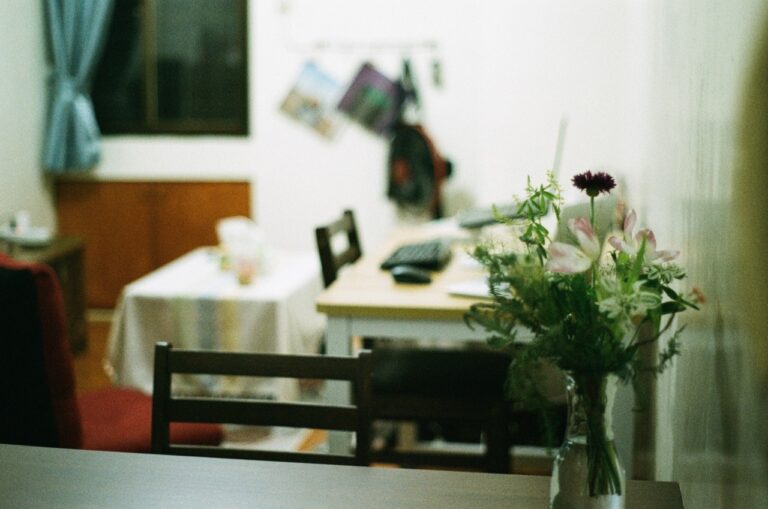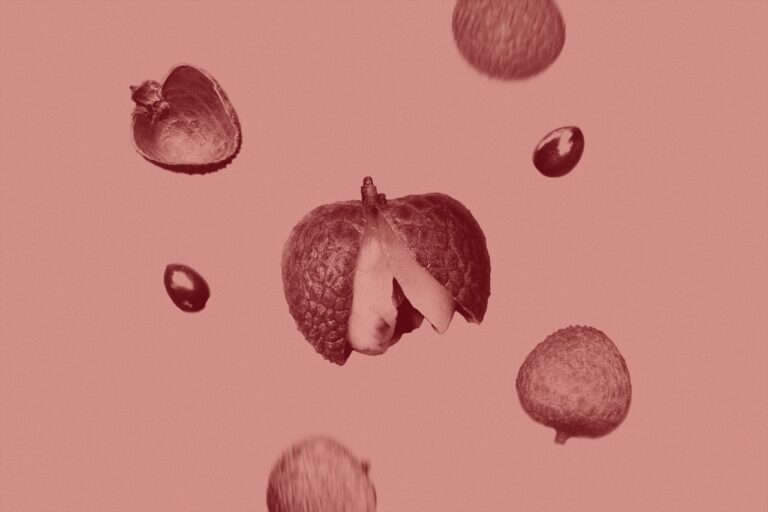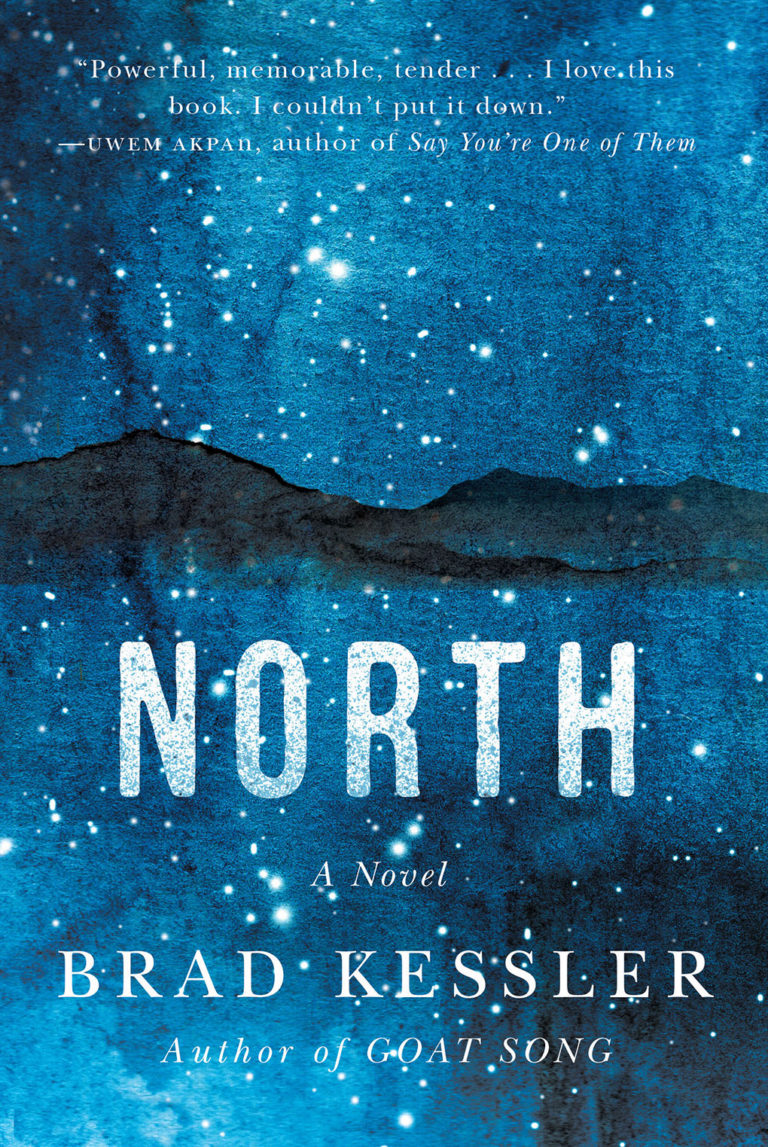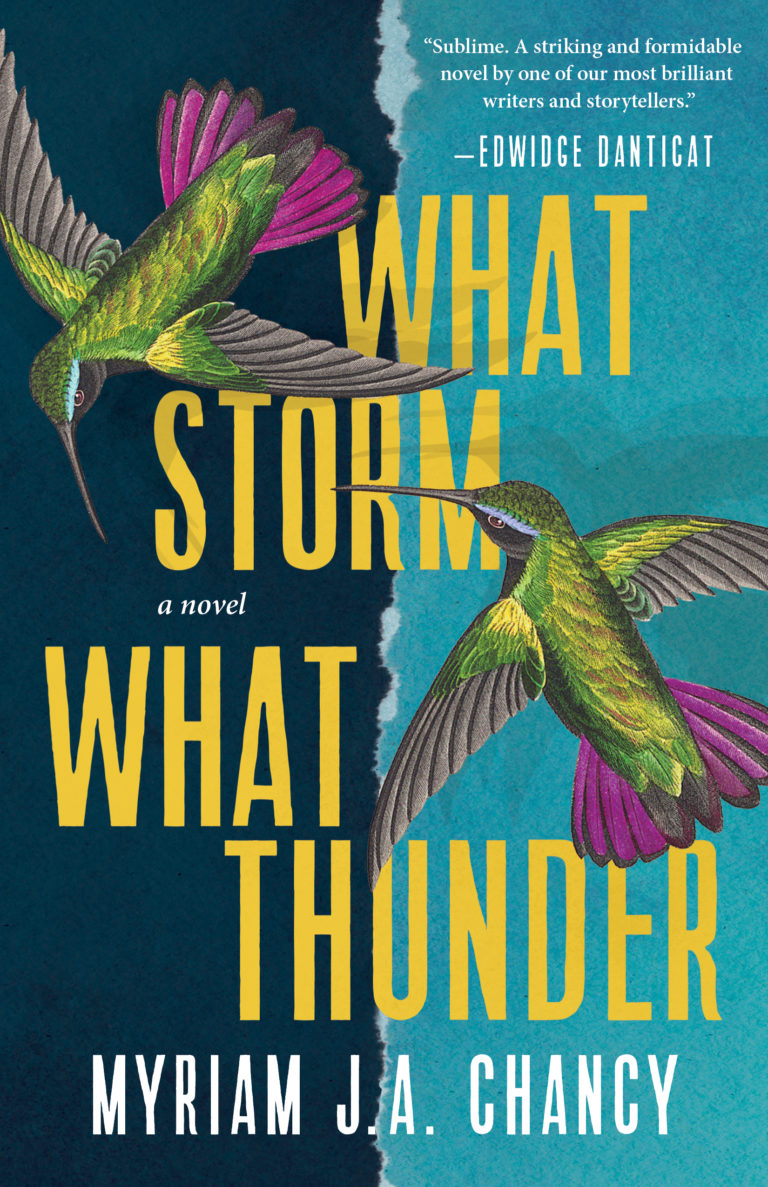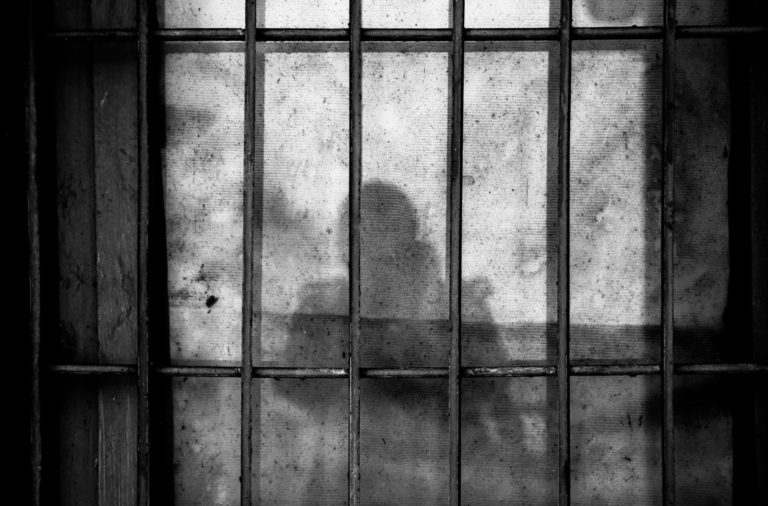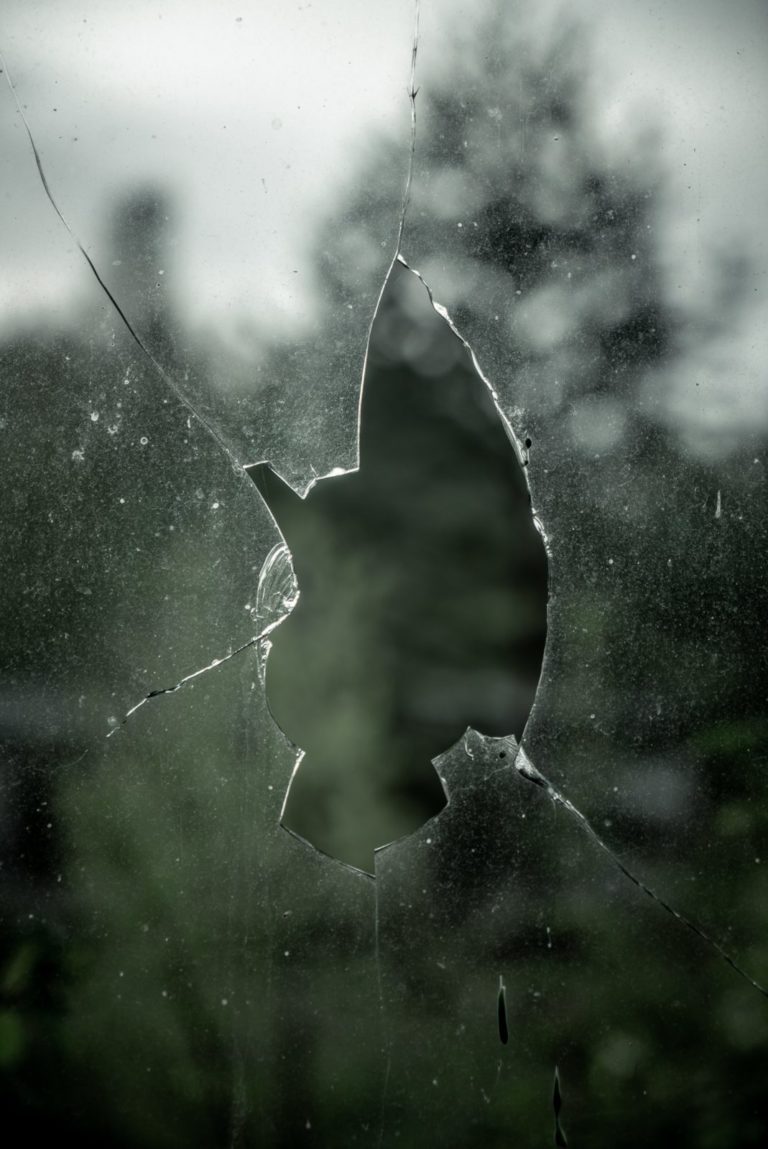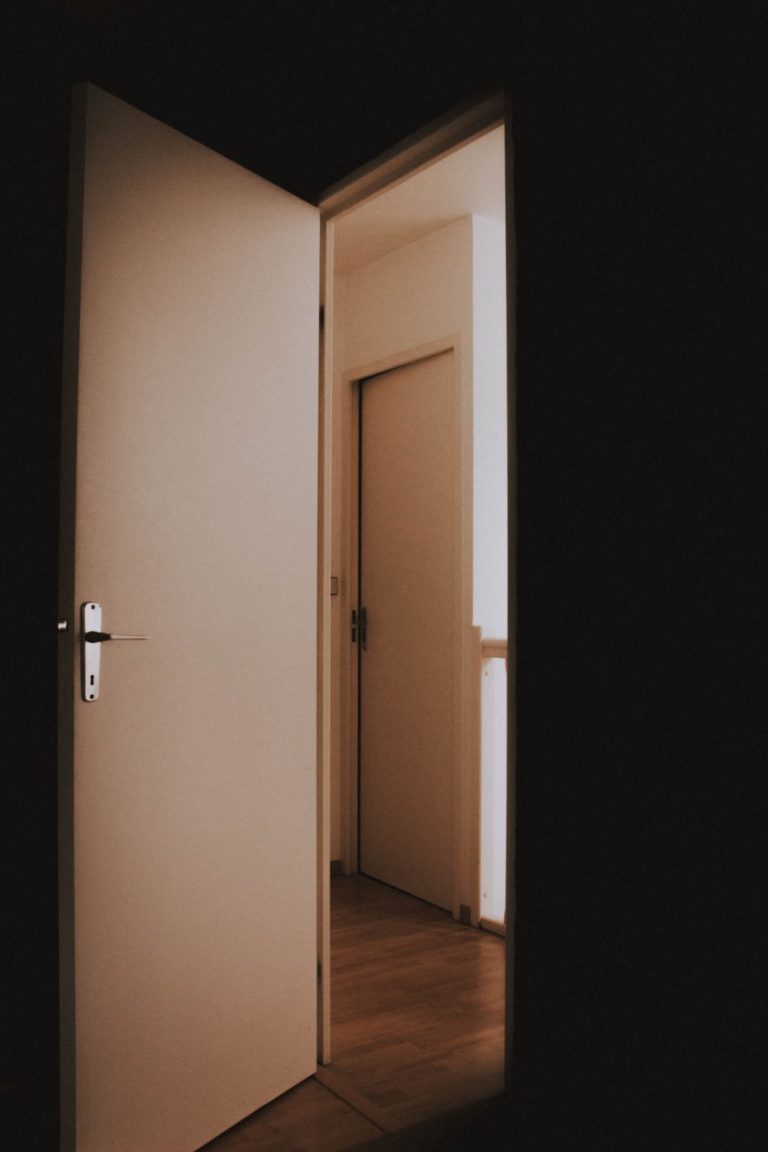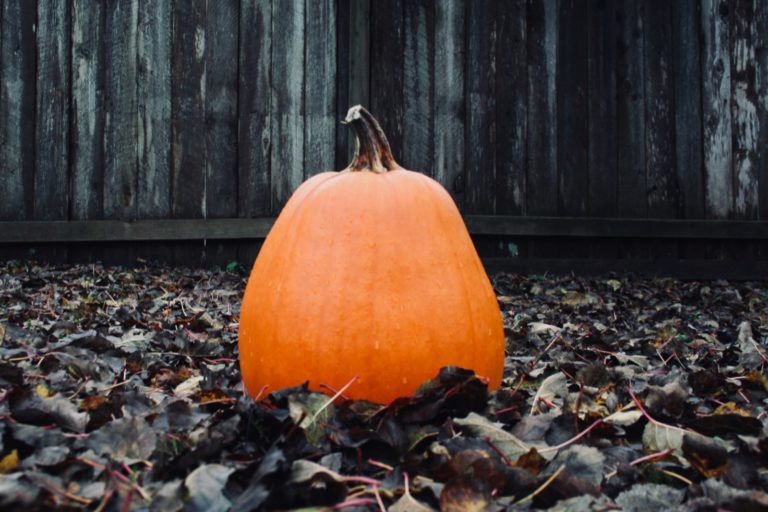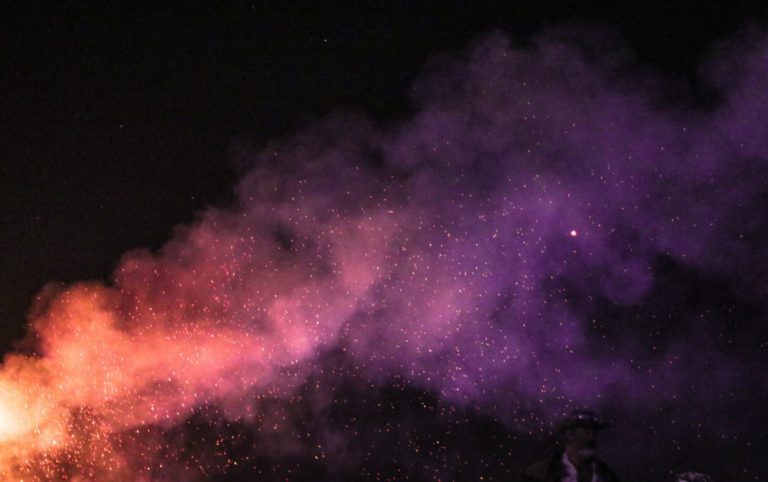Paige sat on the edge of the sandbox waiting for Charlotte to show up. She was surprised at how much she’d missed talking to her. Across the playground, her four-year-old daughter Allegra was lying on her stomach across a swing, pigtails dragging in the dirt. Paige checked her watch. In her pocket was a little Lucite ring carved into the shape of a rose. She’d seen it at a street fair and immediately thought of Charlotte. Despite the fact that they’d only been friends since the beginning of summer, it felt longer. Before Charlotte had left to visit her family in Virginia, she had given Paige a leather change purse embossed with a pigeon (an inside joke). Paige had never expected her to write, but a few days ago an antique postcard with the image of Vita Sackville-West in her white garden, Look Mom, no rats! Thinking of You had arrived.
That morning it had taken Charlotte twice as many Oreos as usual to bribe her daughter Lucy, tired and cranky from last night’s flight, into putting on her pink jelly sandals, and twice as long to wrangle her, bucking and thrashing like a rodeo bull, into her stroller. After which she felt done in, and close to tears. Now she’d be late. A lack of punctuality, her grandmother said, suggested you thought your time was more precious than other people’s. In addition, it gave people time to ponder what other faults you might have.
Charlotte had begun looking forward to her reunion with Paige from almost the minute she set foot in her mother’s house two weeks before. The feeling had only intensified when her husband, Ronnie, was called back to New York after only three days to deal with some disaster at the brokerage firm where he worked.
Charlotte was fretting about seeing her friend, What if something had changed?when she saw her standing by the sandbox and was overcome by that thrilling feeling of ownership she’d once felt when she saw Ronnie on the street, her heart expanding. There she was.
Paige and Charlotte had first met at the playground. Without a word, each had recognized the other as a sister in the bonds of chronic sleep deprivation. It wasn’t anything so obvious as dark circles, dirty hair or the word Diapers scrawled on the back of a hand. Or even the fact that they both were wearing their husbands’ over-sized sweaters. It was seeing the identical expression, the haunted, bewildered look of the POW on the other woman’s face. How did this happen?
This moment of recognition had caused each of them to look away. Return to staring dully through the playground fence, which, as far as they were concerned, might as well have been electrified and laced with razor wire. The playground had been a big selling point for both families. It was nearly brand new. At the very heart of the playground stood a herd of elephants, four bronze-like sculptures which ranged in size from toddler to child height, to the biggest, which stood over five feet tall. All of them except the smallest were hollow inside so kids could climb in and hide.
Before the neighborhood became fashionable, it had supported a lively drug trade, tribes of squatters occupied the abandoned warehouses, while the homeless slept in cardboard boxes near the bridge and beat their clothes on the banks of the East River. Paige and Jack, filled with pioneer spirit, had moved in when the park was still impressively seedy. Charlotte and her husband had come later, after the New York Times anointed it and rents began to escalate along with the appearance of organic produce, coffee bars, and boutiques that displayed sweaters and shoes like museum pieces.
The fact that each woman had chosen not to congregate with the other parents and caregivers over by the benches had not been lost on either of them. It seemed significant that both had turned away from the social groupings that spring up naturally in places like playgrounds and prisons. Still, despite these promising signs, they were cautious. Other mothers had presented themselves as potential life-long friends, but had ultimately been drawn back to work, had given in to the siren song of the suburbs, or, despite their initial bonding had proved incompatible, once they discovered they spanked, voted Republican, or when you were over for a play date made you put a nickel in their “swearing jar” every time you cursed. As a result, the potential friend pool became shallower, the pickings slim. In that way, the playground wasn’t unlike a singles bar. As time passed, standards fell, until Paige and Charlotte found themselves being seduced by a copy of Swann’s Way in a New Yorker tote bag, a woman in Ray Bans wearing an R.E.M. tee-shirt with pearls.
Now as the mothers watched their daughters digging a hole together in the sandbox beside the elephants, each held her breath hoping the other little girl wasn’t a hair-puller or a bucket stealer, a band-aid eater or a baby talker. As time passed and their daughters remained bent over their plastic shovels, laboring as tirelessly as gravediggers, they relaxed.
Finally, Charlotte, who couldn’t bear a silence said, “You girls are doing such a great job there. Working together.”
“They are,” Paige agreed.
“Are you digging to China, Lucy?” Charlotte said. “I liked doing that when I was a little girl.
Truth was her mother would no more let her dig in the yard than fly to the moon. In wintertime, while the other kids were romping in their front yards and building snowmen with wide aphasiac grins to stand sentinel, Charlotte was relegated to playing in her back yard. The snowmen behind her house looked like they were stealing a smoke.
It wasn’t meanness on her mother’s part. It was simply that the sight of an unspoiled, perfectly white blanket of snow stretched across her mother’s front lawn made her happy. She had said that if Charlotte and her father ever came up with something creative, like their neighbor who’d started a trend by making a snowman lawn jockey, they had her blessing.
Watching Lucy jabbing at the sand with her shovel Charlotte resolved she’d let her dig where ever, and when ever she wanted.
“Oh yes, I loved to dig as a girl,” Charlotte went on.
“Looks like fun,” Paige agreed.
The girls, seemingly mesmerized by their task, ignored their mothers.
“It is a pit?” Charlotte asked. “Or, a swimming pool?”
“From here it looks like a tunnel,” Paige said, though her first thought was trench.
“You two aren’t planning to escape, are you?” Charlotte asked, laughing nervously. Why had she said that? She couldn’t count how many times Lucy had torn out of the playground, barreling through the gate and out on to the sidewalk, only to be intercepted by a stranger. Invariably a mother, her baby strapped into the stroller like a sleepy test pilot, would collar Lucy the way you’d grab a hyperactive dog. Charlotte would, as ever, lie. She never does this, she’d say and get only a smug, pitying look in return.
“Are you playing family? Are you making a cake?”
“Or,” Paige said, grinning at the girls, “are you pretending to be witches?”
At this, the girls stopped and turned, each giving their mother a look of disdain. A preview of what they could expect when their daughters became teens.
“I guess it’s a secret,” Paige said.
“Oh, a secret,” Charlotte said in that aren’t-they-so-cute-you-could-just-die voice. “You two have a secret!”
Ah ha, Paige thought, there was the catch. The woman was one of those imbeciles who let their child record the outgoing message on their answering machine. The stammering and giggling, the sound of parents feeding their child the lines. Where did these people think they lived, over the rainbow? In a hollow tree?
They sat in silence for a moment, and then Charlotte yawned extravagantly. Paige yawned in solidarity. When she was still pre-med she’d known exactly how many muscles it took to yawn, at least a hundred. For as long as she could remember, she’d believed that being able to take care of people, having the power to fix people was the greatest, most noble thing she could do.
She liked hospitals. Growing up, her older sister Emily had been anorexic, and had, since the age of sixteen checked in and out of hospitals and psych wings as though they were hotels. The doctors and nurses complimented her lack of squeamishness when they took her sister’s blood, other parents made note of how strong and supportive she was of her mother and sister. She didn’t know whether it was her or her mother or father who began telling people she wanted to be a doctor, but it stuck.
Then spring her junior year of college; reading Goethe on the lawn, she realized she just didn’t feel that way anymore. It was far more pleasurable to puzzle out the meanings of words, chase the solution to How to say She was consumed with ennuithrough the pages of a dictionary (which wasn’t easy, not every culture had a word for ennui) than to try to figure out why someone has a sore throat and can no longer swallow. A book gets published. A throat just gets sore again. If you mis-conjugated a verb, no one sued you for malpractice. You stop swallowing, you die.
She wondered if Charlotte worked. Paige knew it was wrong to judge women who didn’t work, to view them as witless and pathetic. After all, feminism was all about equality, and giving women the power to make their own choices. She couldn’t help it. She wanted to ask Charlotte, but because for some reason she thought she might really like Charlotte, she didn’t. It was better to wait. You never knew. The reactions to her expressed desire to go back to work had ranged from looks of pity more on par with admitting one could no longer afford meat (not even pig’s feet) to such horror, you’d have thought she’d said, “I can’t wait to get back to my job kidnapping babies and selling their organs on the black market.”
Charlotte yawned again. “Forgive me,” she said wiping her eyes. “I’m simply exhausted. I didn’t sleep last night.”
“Ah, sleep,” Paige said. “You know what they say—sleep is the mother’s drug of choice, but like heroin, only the very rich and the very poor can afford it.”
Charlotte wasn’t sure what that meant but she laughed anyway. “I’ve heard that one before,” she said and made a mental note to remember it so she could tell Ronnie. He’d like it. He could use it on clients. Ever since they moved to New York City, he’d spent at least two nights a week taking clients out and showing them a good time. He’d gone to all the trendiest restaurants and bars. Like the retro-cool bar in Chinatown, she’d read about in New York Magazine. Once a dive and a big artist hangout in the 1980s, it now served dim sum in addition to their signature pineapple boat cocktail. The jukebox, Ronnie said, was incredible. Like being back in college. Motown, The Police, Journey. She felt a pang. She should have known when she suggested a “date night” (they hadn’t had one in at least six months) at a new restaurant called “Home” which specialized in traditional American comfort food, fried chicken, biscuits, key lime pie, all their favorites—that Ronnie had already been, and the food sucked. Which was good really, since Charlotte was starting to fear the only way she’d ever lose weight was to be in a coma for six months with nothing but a Slim Fast IV.
“My husband Ronnie says, Let her cry it out. It worked with the other two. We, um, have an older boy and girl. R.J. and Mandy…” Charlotte waited for the raised eyebrow. The only people in New York City to have three children were either on welfare, rich, or too selfish to consider how they were over-populating the earth. However, Paige’s face conveyed no judgment at all, only interest.
“…But I can’t. Lucy is different. Not different different, just—”
Paige laughed, but nicely. “I get it.” Her husband Jack would never let Allegra cry.
“And Ronnie really is a great father, and husband. He is. Every weekend he tells me, you sleep in honey. I’ll take the kids. Which is nice.”
It really was when you considered how hard Ronnie worked. He hadn’t been planning on a third child. She was the one who’d wanted it, who chose to let it happen. Even though Ronnie’s first reponse to the news had been incredulity—How was that possible? followed by disappointment, Well there’s another nail in the coffin—Charlotte knew he loved Lucy.
“Of course they offer to let you sleep,” Paige said, “but it’s like being starved for a week then being told you can eat a whole rib roast and cheesecake on Sunday. You can’t live like that.”
“You’re right,” Charlotte agreed watching nervously as Lucy kicked sand into the hole, praying that in her enthusiasm she wouldn’t inadvertently blind Allegra, or make her cry. “Lucy,” she said in a warning tone, but she kept kicking. Ronnie was right. She could be a pistol. Although she hated it when he called her that, a pistol. All she could see was a gun pointed at her head.
“I think Lucy is trying to kill her mother,” Charlotte said, instantly horrified that she’d said it out loud. “No, I’m just kidding,” she said regretting ever opening her mouth at all. Sometimes she felt unfit for human company. Like she’d just been let out of a cage.
* * *
The next day on her way to the playground, Paige, recognizing another mother she used to know crossing the street in front of her, stopped the stroller so abruptly that had Allegra not dutifully buckled herself into her stroller she’d have been catapulted into the bushes.
“Are we hiding?” Allegra whispered hands over her mouth. Another child, so amused by the fact that she and her mother were in cahoots, crouched behind some greenery, would likely have blown their cover by laughing, but not Allegra.
“No,” Paige whispered. “Not really, we’re just waiting.” Watching as the woman, all in black, one of those $20 art magazines tucked under her arm, slipped into a café that sold $5 cups of coffee. Alone. Without children.
Evie was an artist, and they’d met at a Music for Aardvarks sing-along in a local coffee bar that sold vegan bake goods and welcomed nursing. Evie had a little boy, and a daughter Allegra’s age. She was easy to spot in her black jeans and punk rock tee shirts, like Iggy Pop, Now I Want to Be Your Dog. Her black motorcycle boots, and, a row of gold hoops riding the curve of her ear as though her wardrobe could disguise the fact she was someone’s mother. Two peoples’ mother. You could pass off one child as an accident, a lark, but two was a choice. Within an hour of meeting, Evie had told Paige she wanted to get a tattoo. A heart, like your classic sailor tattoo, but instead of Mom, it would say Dad. She’d told Paige she was an artist, and that she’d recently started painting again—it was shit, all of it shit—but it was all that was saving her. Paige told her she was jealous. She was a translator, who hadn’t been able to work or even read a book in English let alone Italian since her daughter was born, and it was killing her.
“All it took to light a fire under my creative ass was my father dying,” Evie offered blithely. “Although I don’t recommend it for everybody.”
Paige hadn’t known how to respond to that, but Evie didn’t seem to notice. The fact this black-clad hipster mom had chosen to share the story of her father’s long slow death from cancer, and their relationship—call me Elektra—she joked, how after he died she’d cut off a lock of his hair, had made Paige instantly feel close to her.
After a while though, she began to suspect that Evie would tell anyone who’d listen about her dead father. She didn’t know if she’d always been emotionally promiscuous or if it was the grief talking. It was like she was infected by sadness, and as a carrier she made everyone around her sad. Which seemed reckless and a little selfish to Paige, when you’re contagious you quarantine yourself. She should stay inside until the grief ran its course. Stay away from other people, children, anyone whose psychological immune system might be compromised.
The final straw was the day they were in a new café that specialized in cupcakes when a song came on the radio and she started to cry. In front of her kids. The fact that her children hadn’t been upset, or scared or even fazed (Allegra had never seen her cry and never would if Paige could help it) but seemed accustomed to her tears, made Paige uncomfortable. Parents weren’t supposed to cry in front of their kids. Allegra, being Allegra, had wordlessly pushed her cupcake towards Evie.
All it had taken was one unreturned phone call, to lose Evie. Still, Paige had no desire to reconnect with her. Moreover she didn’t want to introduce her to Charlotte. It would be awkward. She didn’t imagine the two of them becoming best friends, but it could happen. It was also possible that Charlotte having met Evie would question Paige’s taste in friends. You are known by the company you keep. Who knew what she might say. So Paige hung back, until she was sure she was out of sight, then quickly made her way into the playground.
Charlotte hoping that Paige might naturally gravitate return to the place they’d met the day before lingered at the sandbox, waiting. In order to get Lucy to stay put she’d had to let her bat rocks over the fence with a naked Barbie doll she’d found in the street. Had her mother seen this she’d have asked, “Does Lucy have any friends who are girls?”
Paige had shown up, with her darling daughter in tow. That was the afternoon, sitting on a bench near the sandbox, that they cemented their bond. Each agreeing that nursing a child old enough to have teeth and work the buttons on his mother’s blouse was disgusting; agreed, watching their daughters run through the spray of the fountains, that the mothers who encouraged their children to cavort naked in the water, haute-hippies who looked like they belonged on an Eileen Fisher commune, should be prosecuted for child abuse. In the few awkward moments of quiet, they yawned.
“I could never understand how anybody could join a cult, but I do now,” Charlotte announced. “I’m halfway into the brainwash cycle right now.”
“What makes you think you haven’t joined a cult?” Paige said. “You just slept through the paperwork.”
“That explains a lot,” Charlotte, said, both of their gazes drawn to a red-tailed hawk who had, with missile-like speed and efficiency, snatched a fledgling from the top of the fence. “Good lord,” Charlotte said. “I hope the girls didn’t see that, did they.”
Paige shook her head reassuringly. If they had witnessed this colorful circle-of-life moment, it hadn’t fazed them at all. “Do you remember Patty Hearst?” Paige said. “She claimed to have been brainwashed into robbing banks by the SLA. They kept her in a closet, deprived her of sleep.”
“I do,” Charlotte said, recalling how that photo of the heiress dressed in military fatigues and a beret, holding a huge gun, had unnerved her. “I don’t remember exactly what happened though. No surprise,” she laughed. “Did her parents pay the ransom?”
“Ha, this is the best part—the ransom was that if they fed all the poor people in California, the SLA would let her go. It was crazy, impossible. The Hearst family donated millions to all these soup kitchens to get their daughter back, and guess what? After all that, she chose to stay with her kidnappers. Not only that, she had the nerve to say: They could have done better.”
Paige could imagine her parents trying to come up with the ransom. Her mother cashing out her IRA and lugging a coffee can of quarters to the CoinStar. Her father would try to write them check that would bounce.
“She did come back to them though, didn’t she? At some point she came back,right?”
“Well, she got arrested,” Paige said. “She claimed she was suffering from, oh fuck what’s the syndrome that makes you identify with your kidnappers?”
“Can you imagine that conversation?” Charlotte wondered aloud. “She must have thrown herself on their mercy. My mother would just die. I mean, truly.”
“Fuck me,” Paige felt acutely aware that she wasn’t as quick-witted or smart as she used to be. “You know that syndrome, the one when a hostage becomes attached to their captors?”
Charlotte hesitated. “Motherhood?”
Paige burst out laughing, felt something in her chest, like a knot, come untied.
Charlotte blushed. She hadn’t meant to say it, but she had and Paige laughed. She wasn’t used to people laughing at her jokes. She wasn’t used to making them. She smiled. She was on a roll. Or as her mother used to say, “on a role” meaning Charlotte was acting like someone she was not—but this was her, wasn’t it?
“Wait,” Charlotte said suddenly serious. “What are the girls doing?” Watching as Allegra and Lucy went charging towards the herd of giant elephants in the center of the park.
Charlotte had forbidden Lucy from playing on the elephants. Every day some child, pretending to be an Indian prince trekking cross the desert, fell off smacking their heads on the meager carpet of foam padding underneath, or lost a tooth. What really worried Charlotte though was that Lucy would crawl up inside one of those hollow animals. Dark and smelly. It was scary. There could be a snake, or a nest of rats in there right now, and she’d never know it.
“They’re fine,” Paige said. “Don’t worry.” There was no reason for Charlotte to worry about Lucy, she was a natural tomboy–she was perfectly fine. “Sit. They’re together. Allegra will keep an eye on Lucy. She is actually very responsible. She picks up other children’s trash. It’s a bit embarrassing actually.”
“I think that’s nice, very civic minded.” Charlotte said, watching uneasily as Lucy jumped off the back of an elephant, picked up a stick and whacked a tree with it. At least she wasn’t pulling up flowers, though usually when she did that it was to make a bouquet for Charlotte, so how could she complain.
“Oh, oh I almost forgot,” Paige cried. “When the police booked Patty Hearst she listed her occupation as Urban Guerilla.”
“There’s a job title,” Charlotte said. “Maybe once the kids are out of the house I’ll pick it up as a second career.”
Paige laughed. A second career? Maybe there was hope.
Charlotte relaxed. Maybe she was funny.
When minutes later Allegra fell out of the belly of the biggest elephant Charlotte screamed, and Paige sighed, then strolled over to her daughter, collapsed on the ground and began rubbing her back. “Look at the baby!” she’d cooed. “Look at the beautiful newborn baby!” until Allegra began to slowly wiggle her arms and legs and blink open her eyes, and with Paige’s help stand up unsteadily, to take her first steps and then, in a flash she bolted back into the herd of statues and disappeared.
Paige turned to Charlotte and rolled her eyes. “Sorry about that. She can do that for hours. Sometimes, though, she gets in there and then decides she doesn’t want to come out, and I have to do an emergency C-section.”
“Don’t give it a thought. I was just afraid she was hurt.” Charlotte said nothing about the rats.
“No. Allegra is her father’s child. Fearless, coordinated, resilient.” An image of her husband, Jack, “Handsome Jack,” his college friends, still called him, (much to him embarrassment) with his shirt off, playing squash, his beautifully muscled back appeared in her head. It made her tired.
“I was about to ask you what you did when my daughter—”
“I’m freelance. Computer design.”
Freelance computer design. Charlotte had practiced saying this, until it felt natural.
You couldn’t spend five minutes with a New Yorker without them asking what you did. What was your purpose? In California, it had been exercise, and the environment. Thank heavens it was just a year. She didn’t know her rising sign, or engage in any activity requiring you to chant or wear a leotard. She’d lied about using cloth diapers.
At least New York and Richmond were in the same time zone. Her mother said she could never get used to the west coast time difference. She’d apologize for calling so early, what was it, 4:45? 5:00? “Your daddy just left for work so I thought I’d call.” It didn’t matter. Lucy was usually up, so she was up, and Ronnie was sleeping anyway. It was always the same, both of them in their dressing gowns, drinking coffee, at the kitchen table, no husbands around. They talked. The weather changed, what they were making for dinner changed, but the rest stayed the same. Charlotte’s father was good, her grandpa just great, her mother’s tennis elbow was getting better. Ronnie was great, work was going well, the kids were growing, happy, she was good, great, happy, well, meeting some friends for lunch. It was an old song, but they both knew it, and there was something to be said for that.
“So,” Paige asked, “Are you working now?”
“Well, no, up until Lucy was born—before I got into design—I was working in the publicity department of an ad agency downtown. Four days a week. Before I left the head of human resources promised me my job would be waiting for me whenever I chose to come back, but then—”
Charlotte had told the lie so many times she now believed it. In truth, they’d offered her reduced hours, and she’d declined. Ronnie would die and go straight to heaven if he knew. He wanted her to go back to work. Even if it just covered the cost of a nanny.
“But then there wasn’t a job, right? How typical. You know that’s illegal. You could sue them to get your job back.” You’re lucky, Paige thought.
“The worst part,” Charlotte said, “was I trusted her. We weren’t friends, but we were friendly. It was only later that I realized she was the only person in the entire office who never once asked to see a picture of my kids. That’s odd I think. I don’t know that I trust any woman who doesn’t have kids.” Charlotte was rambling now.
Even gay women wanted babies. A girl she knew in college, who to her surprise turned out to be a lesbian—maybe it was that year abroad—had gone to China to adopt a baby.
What did a woman who didn’t want children, want? What did she want more than children? It was creepy.
“Any how freelance is the way to go. And I get to spend time with Lucy—she really is a lot of fun—and I’m free to pick up my other daughter and son from school. These are the most important years, after all, right? Children do need two parents, but right now the mother is most important.”
“That’s true,” Paige said.
Jack was more of a mothering type than she was. Every one said so. He was more patient, more eager to take Allegra to the park, to read her a bedtime story, more willing to let her sleep in their bed. Seeing what a great father Jack was Paige wondered, like any kid, what it would have been like if her parents hadn’t divorced. If it hadn’t just been weekends and there hadn’t been a stepmother. Her mother and sister had been a unit, and she and her father had been unit.
Paige wished Charlotte had stopped at “Freelance is the way to go.”
“So, do you work?” Charlotte asked secretly hoping Paige was just like her.
“I’m a translator,” Paige said, feeling at once proud, and a fraud.
“Oh, how interesting. What do you translate?”
“Books.”
“Really? What have you translated lately?”
Paige winced. At least Charlotte hadn’t said, as so many people did, have you translated anything I’d know?
“Well,” Paige began, “before Allegra was born I’d been working on this manuscript, an absurdist Italian novelist some Hollywood actor had cited as his greatest influence during an interview, and so suddenly everybody was dying for this book. It was a rush. Then, three weeks before my due date I go into labor.
“Long story short, Allegra isn’t much of a sleeper, Jack—my husband—was travelling a lot for business—he’s a furniture importer—and so time passed. It wasn’t as if I wasn’t thinking about it. I was. I was. You have no idea how much I wanted to get back inside that book, into a foreign language I could decipher. Notgoo goo gaa gaa. I just didn’t have time. Then I hear from a friend of mine, a fellow translator, that he heard the house had re-assigned it.”
“That doesn’t sound like a very good friend,” Charlotte said shaking her head.
“And my editor didn’t even have the decency to call and tell me. So, I call him, and he tells me I missed my deadline. Which I suspected, I’m not a fool, but they usuallycall you when you’re late. So, I asked him, `Why didn’t you call me?’ And he says, `I know you just had a baby, so I just assumed, when we didn’t hear from you, that asa new mother you were too busy to complete the job.’”
“He should have called you,” Charlotte said righteously. “It’s unfair, not to mention rude.”
“He didn’t respect me enough to call me.” That was the bitter truth.
He’d clearly felt he was being a big man, generous, when he let her keep her advance despite the fact she hadn’t produced a manuscript—but it wasn’t about the money. As Jack, in an attempt to comfort her had pointed out, they didn’t need it. True, they didn’t need it. She needed it. Before Allegra was born, before Jack’s concerns about his daughter’s happiness and welfare eclipsed hers, he’d have understood that.
“Well,” Charlotte huffed, “People have babies all the time. Heavens, the world doesn’t stop.”
But it had, in a way for Paige. Everyone seemed against the idea of continuing to work. Even her mother, a single mom, who had always worked, and preached about how she and her older sister could be whatever they wanted to be, (her sister, the craziest person she knew, was currently training to be a therapist) had urged Paige not to go back to work if she didn’t have to. “Don’t go yet. Wait. Be a mom. Savor every single moment of your daughter’s life. It goes by so quickly. Too quickly,” she said her voice filling with emotion. “Your work will always be there.”
But it wasn’t there anymore. Her mother couldn’t possibly understand what it was like to have your life taken away like that. Her mother had never wanted to be anything but a mother. She’d never even remarried. She couldn’t understand how hard it was to balance marriage and children, forget having a job. Her mother could say she wanted to be a musician, but that was a hundred years ago. If she really wanted to be a musician, she’d have stuck with it. No, she loved being a mother. She loved being needed. Paige didn’t. Her mother never had to make the sort of sacrifices Paige had. She couldn’t possibly understand.
For the last two years Paige had passed on every book party invitation she received. Two minutes in a room full of men whose wives stayed home with their children, or worse, women just thirty who’d opted to have books before babies, or worst of fucking all, had managed to have a baby and somehow continue working, filled her with six months’ worth of despair.
The look on people’s faces as they rifled through their mind’s Rolodex searching for her name. Oh wait, I know who you are; you used to work in publishing, didn’t you? You’re an editor? A writer? No, right, a translator. It was unbearable.
Of course, now, now that she felt ready, more than ready to return to that world, the invitations had dried up. Editors she’d worked with had moved on, or out. The competition, the new young guns, were able to do the twice the work in half the time, and were willing to do so for half as much.
A few weeks ago, while Allegra was napping, she’d drafted some letters, trying to strike the right balance between eager and desperate. Having seen Evie strengthened her resolve to send them.
Paige yawned. Charlotte yawned too.
“Hey,” Paige said, “Did you know that the symptoms of sleep deprivation mimic those of Alzheimer’s?”
“Where did you hear that?”
“Are you kidding me? I can’t remember, but it’s true isn’t it? Forgetfulness, confusion, inability to distinguish reality from fantasy?”
“I get it,” Charlotte smiled.
“So,” Paige said, “any chance you’re free tomorrow?”
* * *
Over the next few weeks, Charlotte and Paige shared everything. They confessed dalliances with bulimia, pre-marriage infidelities, lost weekends in college with Johnny Walker and his brother Jack Daniels, and professed to being more than acquainted with various drugs. Paige boasted of smoking Thai stick in high school, and spending the nineties doing rails in dance clubs with her gay best friend—who—Charlotte was secretly pleased to hear—she barely saw now that she had a kid. Charlotte told her about how she and this wild friend of hers, named Bender (Paige could swear she’d heard of this girl, after all, it was a small world) used to go to this farm bar in the middle of nowhere, at three in the morning to party with the famers. Paige told of hiding in the bathroom at a five-year-old’s birthday party, chasing a Klonopin with a margarita the hostess had thoughtfully provided for the grown-ups, and how after the violent clubbing of a Dora the Explorer pinata, candy sprayed obscenely around the room, Paige had been so eager to flee, she’d unwittingly crammed another child’s shoes on Allegra’s feet. Even though they were a size too small, Allegra hadn’t complained or even mentioned it, and Paige hadn’t noticed she’d taken the wrong shoes until a day later.
Charlotte loved the story. “What did you do?”
“At that point, I couldn’t very well call the kid’s mother and tell her about the mix-up. What would I say? Mind you, even if you leave out the foot binding and hobbling of my daughter’s feet, I’m still a drunken thief. No, I threw the shoes away.”
Charlotte shared the horror of having to attend a parents’ dinner at her older kids’ school by herself because Ronnie was working. She was nervous, and so had begun to drink, which she really didn’t do anymore. The next morning, after barely managing to drop the twins off at school, she’d been forced to dash into the bathroom at Starbucks with Lucy strapped in the stroller, to vomit. When she came out there was an impeccably dressed woman, head to toe, white cashmere staring at her aghast.
“You’re kidding. “You poor baby,” Paige said. “What did you do?”
“I told her I was pregnant.”
“You didn’t. You did not!” Paige jumped up to go knock wood on the side of a tree. “What did she say?”
“She congratulated me.”
Charlotte wished it were true, however it was hard to get pregnant if the only time your husband wanted to go to bed with you was when he was knee-walking drunk, or if it was a major holiday like Christmas or the Fourth of July,
“You couldn’t pay me to go through that again!” Paige howled with laughter.
Since Allegra was born, Jack had started calling her, “Hot Mom” which he said he meant it as a compliment of course, but Paige didn’t want to be the hot mom in yoga pants flush from a Baby Om class, exhausted from her husband letting their child sleep in their bed the night before. Paige wanted to be Jack’s hot wife, in a black cocktail dress, talking dirty in ten different languages, ready to make love until she collapsed from exhaustion.
He didn’t see her that way anymore.
They’d been having sex in the shower when he whispered naughtily in her ear, “You’re my MILF. Mother I Like to Fuck,” he said like it she didn’t already know what that meant. As a wife, she was owed sex as much as he was, yet increasingly it felt like an obligation—Mrs. Cleaver flat on her back. That wasn’t like her.
She’d always scorned those wives who treated sex like a chore they should be paid for, like shoveling snow or feeding the dog. Who relied on maintenance sex, blow jobs the erotic equivalent of an oil change, to keep their marriage running smoothly. Yet here she was. It scared her.
“I think women would have more desire for their husbands if they paid them for it,” Paige said. “Laid a fifty on the dresser, and the wife could spend it on whatever she wanted. Nothing for the children.”
“I’d make more money with a paper-route.”
Charlotte wanted a cookie, an Oreo maybe. “On the sunny side at least we have husbands,” she said rummaging in the net bag on the back of the stroller. “Good ones too. Not like those fathers you see prowling round the teeter-totter at ten o’clock on a Sunday morning—”
“Strutting around like that snuggly is an extension of their penis. All hale the Great Sperminator!” At that moment, a hawk circled overhead. “What do you think he’s hunting?” Paige asked pointing at the sky.
Charlotte didn’t look up, “Not even watching their child—you can always pick them out, no coats, no socks, half the time the boys are still in their pajamas, grimy faces, roaming the park like a pack of savages. The girls, hair in knots, half-dressed in some whorish get up, high heels, half-Disney Princess, half pole-dancer. They might as well be orphans.”
Paige chuckled. Charlotte was looking past her, not at the bird of prey, which sadly was becoming just a blot on the sky, but into the middle distance. Her cheeks were flushed.
“And what is Dad—how-good-of-him-to-take-them-to-the-park-Dad doing? Flirting with some little Dutch au pair who barely speaks English, or gabbing on his g-d blackberry like, Look at me I’m a Captain of Industry. If I put down this phone planes will explode in midflight, the stock market plummet, illegal aliens pour in over our borders. All that is keeping you safe from certain destruction is this phone and me.’
“Meanwhile, he’s probably on some phone sex line—and I feel like shouting ‘How can you, how dare you even think of leaving your wife? Your children, your children, aren’t even grown yet!”
Charlotte was panting slightly. “Oh my,” she said, visibly shaken as though she’d been speaking in tongues.
Paige reached over and squeezed Charlotte’s hand. It was sweaty. Paige didn’t have to meet Ronnie to know she’d dislike him.
“Is everything okay?”
Charlotte laid her hand across her forehead. “Don’t listen to me.”
“No, really. Are you okay?”
“I’m fine,” she said waving her off. “I’m just tired. You know. It’s a good thing we’re going to visit my parents next week, not vacation exactly but we’ll all be together as a family. That is what matters.”
“When do you leave?”
“I can’t remember the date, exactly.” Charlotte yawned suddenly exhausted. “I think I have a mental block against it.”
“Did you know the symptoms of sleep deprivation mimic those of Alzheimer’s?”
She’d made this joke the first day they met.
“I know. You’re right,” Charlotte laughed half-heartedly, remembering how her grandfather in his fleeting moments of clarity had gone through his photographs writing the names of his family and friends below their images. Wife, daughter, father. Still, there were some, a portrait of his sister and his mother holding hands, himself as a boy in a coonskin cap, over whose heads he’d put only a question mark.
* * *
The day before Charlotte left for home Paige brought a bottle of wine disguised in a thermos to the park, and they’d sat on a bench, drinking it out of paper cups.
“We’re such bad girls,” Paige said raising her glass.
“To us,” Charlotte said.
They drank. “A lady drinking in public. It’s a scandal. My mother would just die,” Charlotte said, and grinned, satisfaction spreading as the wine began to relax her.
“To our mothers,” Paige said, grateful Charlotte’s mother wasn’t her own.
Through the fence, they watched a pack of gangly black teenagers in parkas with big fur collars and moon-boot sized sneakers, circling the park on bikes that were clearly far too small for them.
Paige, liberated by the knowledge that her friend would never think she was racist, said: “Do you bet they stole those bikes? I mean, look at them.”
“Probably,” Charlotte said, then without missing a beat, “Do you bet they’re selling drugs?”
“We could ask,” Paige said jokingly. “Do you want to buy some weed? Maybe some crack? A speedball?”
They’d both gotten a kick out of that, and both were relieved when the boys didn’t circle round again, but began peddling away, no doubt home for dinner.
Watching the boys shrinking to dots, Charlotte cried, “You missed a sale!” She felt so exhilarated. It was almost like they’d done it, but better than that, because they hadn’t.
“Nope, no hope in dope.” Paige grinned.
“Hugs not drugs. Coke, don’t blow it.”
“Crack. It’s what’s for dinner.”
“Just say No.”
“It was a million years ago, wasn’t it?” Paige sighed. “Just say No. I’d do some coke right now if someone came up and gave it to me.”
“Me too,” Charlotte said. She might with Paige.
A pair of teenage girls in matching halter dresses, hair shiny and past their shoulders, glided into the park arm in arm, and stood just inside the fence like they were contemplating a short cut across the park, then thought better of it. College students, Charlotte thought. Paige guessed fifteen, maybe sixteen.
The way the girls promenaded down the sidewalk, the way heads turned, and people lowered their papers, drivers idled at green lights, all for a glimpse of this pair, seemed at once foreign and yet so familiar to Paige.
“So, girl talk. How old were you?”
Charlotte looked confused. She knew what she was asking.
“When you lost your cherry, and where? I was fifteen, in my bedroom at home, while my mother and sister were in the living room watching A Star is Born, for the tenth time, weeping hysterically.”
“You’re serious?” Charlotte was dumbfounded.
“And he spent the night. In my canopy bed with my whole collection of beanie babies and stuffed animals piled around him. Lions and tigers and bears, oh my.” What Paige remembered best was that when she woke up the guy was sleeping beside her with a toy clutched to his chest.
“My mother didn’t care,” Paige said, wondering if this was in fact true. “You think I’m joking? When I came home from college, I ran my vibrator through the dishwasher. She treated it like it was any other home appliance.”
Charlotte paled. “Don’t be shy now. I just told you my story—”
It wasn’t as though Charlotte had never talked about the rape. She had. She’d talked to a therapist. She told her, it wasn’t sex it was violence. It wasn’t as if she hadn’t been with other men in the seven years before she met Ronnie, she had and he knew that. She hadn’t had sex though. Wouldn’t. Couldn’t. Not until Ronnie. She’d read that after seven years of not having sex you could consider yourself a virgin. Even so she’d felt a moral obligation to tell Ronnie before they married, even though she feared, silly or not, he’d ask for the ring back.
Charlotte didn’t have to ask her mother to explain what she meant when, in the middle of shopping for her trousseau, she said, “You realize, I hope, that a lady doesn’t need to tell her husband all her secrets. A little mystery is a good thing.” Then she’d laughed, the sound a high ringing chime. What fun we’re having! “Why, the first ten years of my marriage I went to bed with a full face of makeup on.” She paused, rubbing the silk of a nightgown pale as moonlight, between her fingers. “You don’t have to talk about everything.”
Charlotte looked at Paige. Then at the ground. The grass was matted with food crumbs and gum. She could tell her, couldn’t she? She wanted to.
“It wasn’t my choice,,” she said, and now couldn’t take it back.
“Oh—” Paige looked pained, her face gone gray.
“You know, I don’t like to talk about it. I’ve never—” Charlotte wished she could stop herself.
“Oh sweetie, I’m sorry. I’m so, so sorry.”
“No, no. It’s just me,” she wiped her eyes, and smiled. “Forgive me? Just pretend—”
“ I know. Every woman I know has had something like this happen to them.”
“I shouldn’t have told you that….”
“Why? I understand,” Paige moved closer to Charlotte on the bench, and reached for her hand. “And if not me, who?”
So, she told her. From a distance, only another mother could have told that Charlotte was crying. She was crying the way mothers learn to do. Her body betrayed nothing. There was no wiping her eyes, or heaving shoulders, no sound at all. Until she’d put her head on Paige’s shoulder and begun to wail.
* * *
Charlotte was only gone for two weeks, but it felt longer. During her absence, the rats had come back in force. Maybe it was the heat of late August, the trashcans overflowing with spoiled lunches, swollen diapers and sticky ice-cream wrappers. Maybe it was because the red-tailed hawks had vanished. You could hear the rats scrabbling under the shrubbery, catch sight of a length of tail, bald and pink as it slipped behind the water fountain. When the sun started to dip towards the horizon, they’d become even bolder, parading across the pavement and in between the feet of the elephants.
The neighborhood civic association had begun putting up posters, Stop Babies Getting Rabies! with the image of a crying baby and a defiantly evil rat with a slash through it. Paige couldn’t understand why others didn’t find the posters and the asides people had scrawled on them (Stop Babies with Rabies Before they Kill Again!) as hilarious as she did. Even the suggestion of amusement at the image of foam pouring out of a rabid infant’s mouth and the tagline: Nannie Get Your Gun!elicited nothing but dirty looks from other parents. It was too hot for sex, Jack said. He was excited about going back to India. He wished she could accompany him, but there was Allegra, and leaving her with Paige’s mother wasn’t really an option. Maybe she and Allegra ought to go visit his mom in the country. Maybe when he got back they should go look at some houses in Pelham? Just look. She’d reacted badly. Her life was here. Her friends were here. Her work was here. Her friends were here. Jack hadn’t called her on it, but she knew what he was thinking.
It had been weeks since she’d written those editors asking for work. Anything really, it didn’t have to be literary. Surely, the Germans were interested in reading Chicken Soup for the Soul in their native tongue. She hadn’t really expected they’d respond quickly, after all, it was summer. People went on vacation. Still, she’d hoped. Even though she knew, in her heart of hearts that they wouldn’t respond at all.
* * *
The entire way to the park Lucy had kicked and screamed like she was being kidnapped. Charlotte couldn’t stand it anymore. At the top of the hill with the playground in sight, Charlotte stopped. She crouched down beside Lucy and in the calmest voice she could muster said, “Won’t it be nice to see Allegra again?”
The girl had howled in her face, “I hate Allegra!”
Charlotte took her arm, “I swear if you don’t behave yourself, I will just die,” she said tightening her grip. “Do you hear me?”
“No,” Lucy said, less defiant now.
“I mean it I will smack you, I will.” Charlotte had never spoken to her daughter, or anyone like that. Never.
That had silenced her. Mercifully, while Charlotte was hugging Paige, and Paige hugged her back, she’d let Allegra hug her. She hadn’t said a word. She hadn’t followed Allegra over to the swings, but headed for the bouncy bridge. Neither woman noticed, and even if they had, wouldn’t have cared.
They wanted to exchange their gifts. Each crying, “You didn’t have to!” Each happy the other had.
“I love my little rose ring,” Charlotte said as she worked it down her pinkie finger. Was there ever a more beautiful ring?
“I love my lavender sachets,” Paige said. They were made of violet silk heavy with flowers.
They were perfect gifts.
“So,” Charlotte said brightly, “what did I miss?”
“Here? Nothing. The rats, of course. How was home? Tell me everything.”
Charlotte took a deep breath. “Well, we’re a bit like a traveling circus, aren’t we?” she said, her voice strained by forced cheerfulness. “Poor Ronnie got called back after three days. Unavoidable, of course. It put a bee in my mother’ bonnet. She’d ask me two, three times a day if I’d talked to him. How was he getting by without me? It was eleven o’clock at night and he wasn’t home? Had I tried him on his cellphone? How could Lucy possibly fall sleep without saying good night to her daddy? She said, I always knew where your father was, especially when he was travelling. What does that mean? The she says, Won’t it be nice, she said, when the kids are in college you can accompany him? You notice she doesn’t offer to baby sit though.”
“That may be for the best,” Paige said. “My mother and sister had Allegra over for tea. When I picked her up she was wearing hot pink nail polish, mascara, and red lipstick, and sang the theme song from Gypsy—which my sister had taught her. On the way home she wouldn’t eat anything with a face.”
“You’re kidding.”
“And she had a rash, so she was in our bed all night long.” Paige yawned. Jack had gotten up in the middle of the night to sleep on the sofa. He’d never done that before, ever.
“Well, I barely saw Ronnie last night,” Charlotte said in a low voice. “I don’t know if I got the arrival time wrong, or he did, but he didn’t have his phone on, so he was nearly two hours late.”
“You’re not serious?”
“And when he did finally show up, there we were, the four of us, all dirty and tired, at the curb sitting on our suitcases like a bunch of gypsies. His sweet little family.”
Ronnie looked great. He was a different man. You’d have thought he was the one on vacation. Well-rested and thin, he’d picked up the kids and hugging each one, said, `Look at you. Look how much you’ve grown. Next thing you know you’ll be off to college,’ like it was his fondest wish. He had kissed her too.
“Char, you should have called me,” Paige said, imagining how ragged poor Charlotte must have been. Ronnie was an asshole. “Next time call me.”
“We weren’t home five minutes before he looked like he wanted to get back in the car and hightail it outta there.”
Ronnie had apologized for how he’d let the place go. There was no food, the fridge was empty, the trashcan full of take-out containers, and at the bottom, the bright blue foil of a condom wrapper. While Ronnie was falling asleep, watching the end of the baseball game in bed, Charlotte had put the children to bed. R.J. who hadn’t wanted his mother to put him bed for a year now, wanted a story, so she read while braiding Mandy’s hair. Lucy, who’d wanted to sleep on her brother’s floor like dog, had woken up when Lucy picked her up, so Charlotte had lay with her until she fell back asleep.
From the bench Charlotte watched her daughter scale the front of the slide like a mountain climber, much to the unhappiness of the children in line on the ladder, who were yelling at her. Lucy, if she noticed at all, didn’t care. Allegra wasn’t there. She was off, over on the swings with another girl, both of them lying across the swings, arms outstretched, pretending they could fly.
“You must be ruined,” Paige said, sounding worried.
“I am hot,” Charlotte said running her hand across her brow. “You know what they say, Men and horses sweat, ladies perspire.”
“Really?”
“I’m just tired,” she yawned so tears came into her eyes. A few nights of sleep in my own bed and I’ll be right as rain.” Why was Paige looking at her that way? “It’s fine, really. It’ll take some time, but once we get back into our routine…” Charlotte’s voice trailed off.
“If you knew how hard it was going to be,” Paige began, “Would you do it again? I don’t mean the pain, the childbirth part, that’s nothing…I mean the rest of it.”
“It can be hard,” Charlotte said. The fence was higher than she remembered. Someone had found a child’s sunhat and put it on top of a parking meter.
Paige couldn’t look at Allegra. “ I love her,” she said, “but if I’d known how hard it was going to be, sharing my husband, what I’d give up, my career, myself—when I think about who I used to be before I became a mother. I don’t recognize this person,” Paige’s voice trembled, “I don’t think I’d have done it.”
“How can you say that?” Charlotte was frightened. “You don’t mean it.”
“Is this what you planned on?” Paige asked. “Is this what you wanted? Can you really say that?”
Charlotte closed her eyes and said nothing.
The sun was setting, and each woman shivered. It was getting cooler, almost dark now. The girls just shadows. They stayed like that, not moving at all, until the streetlights began to come on.

